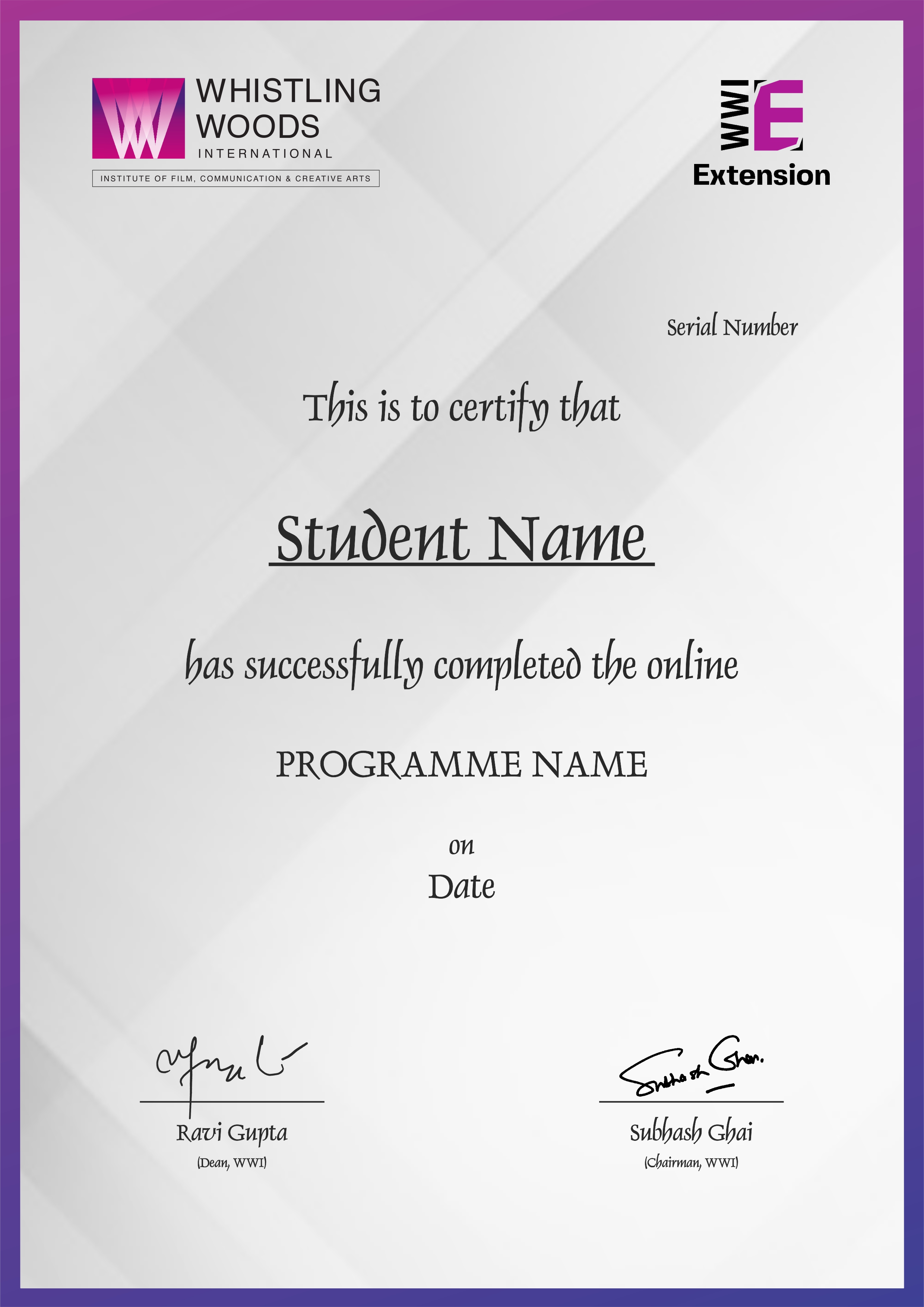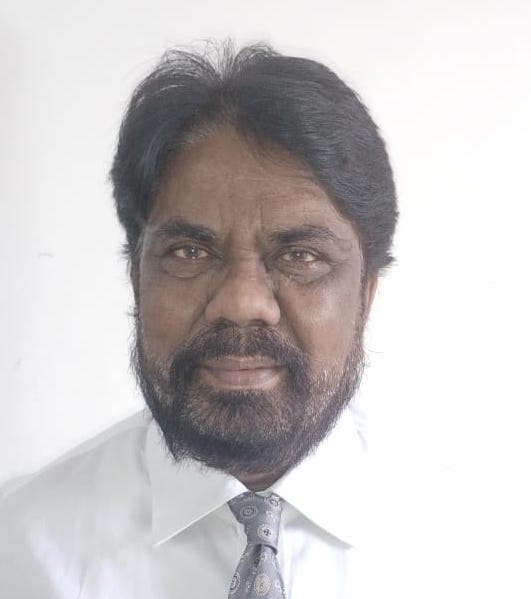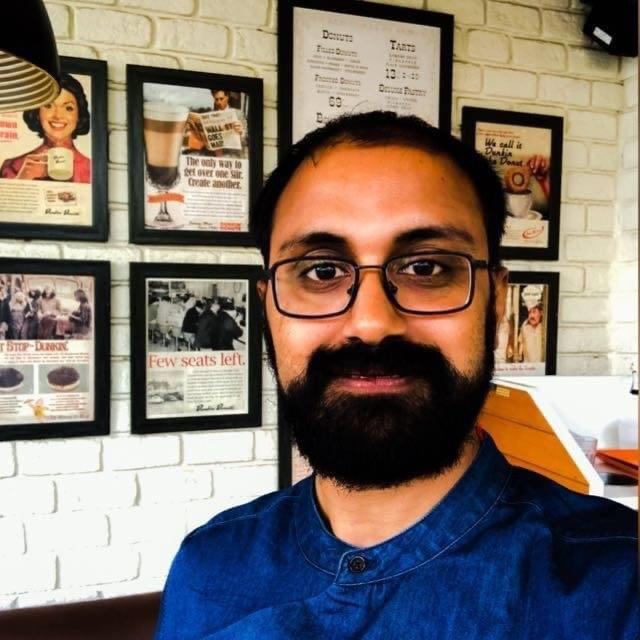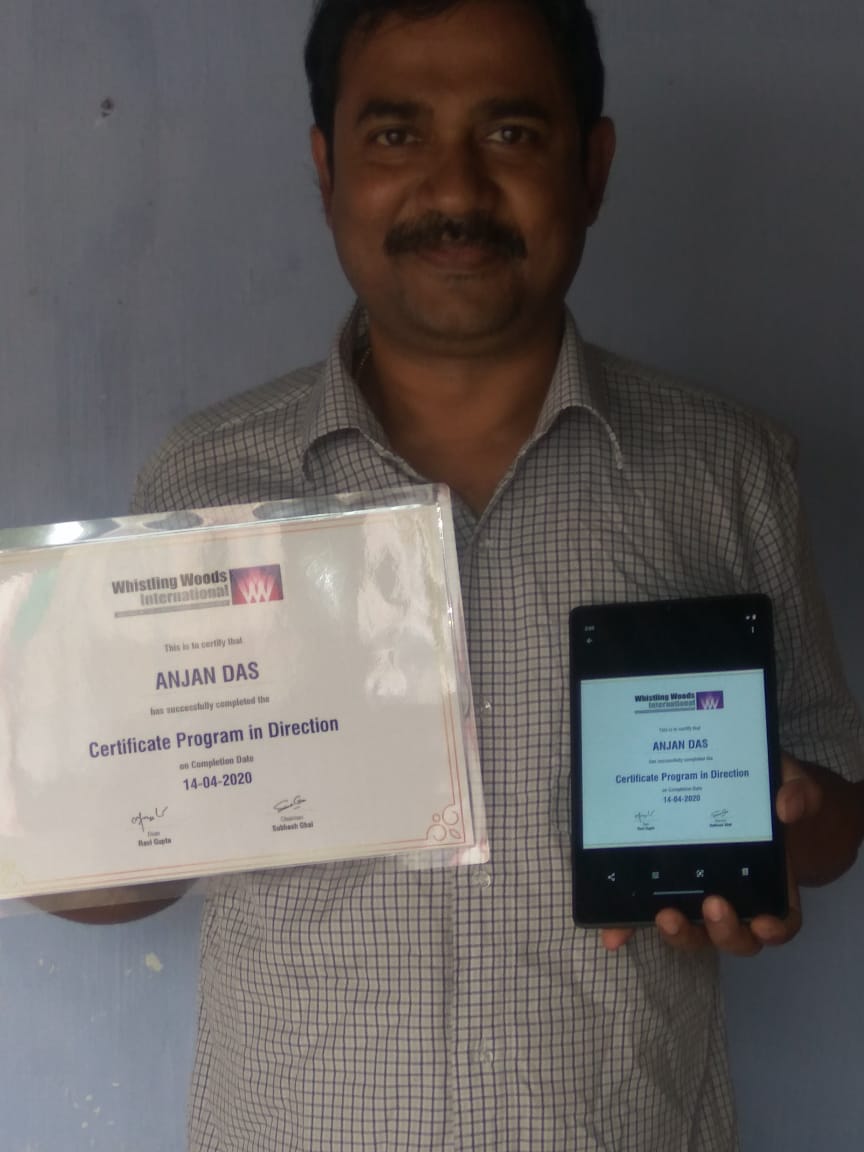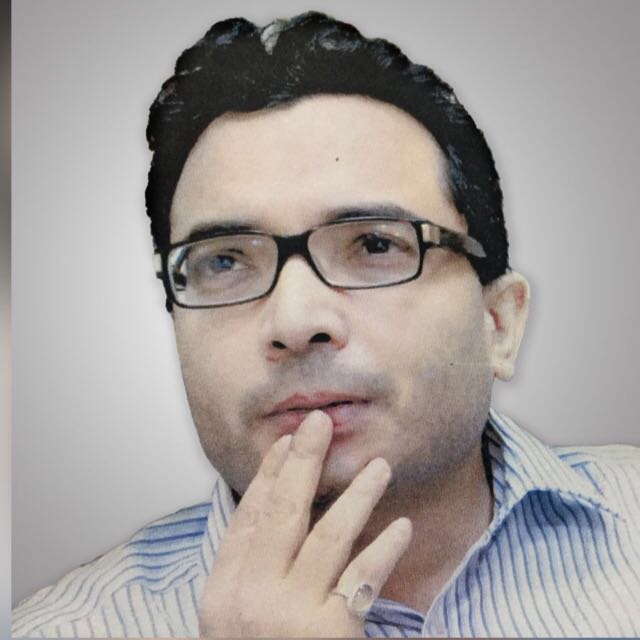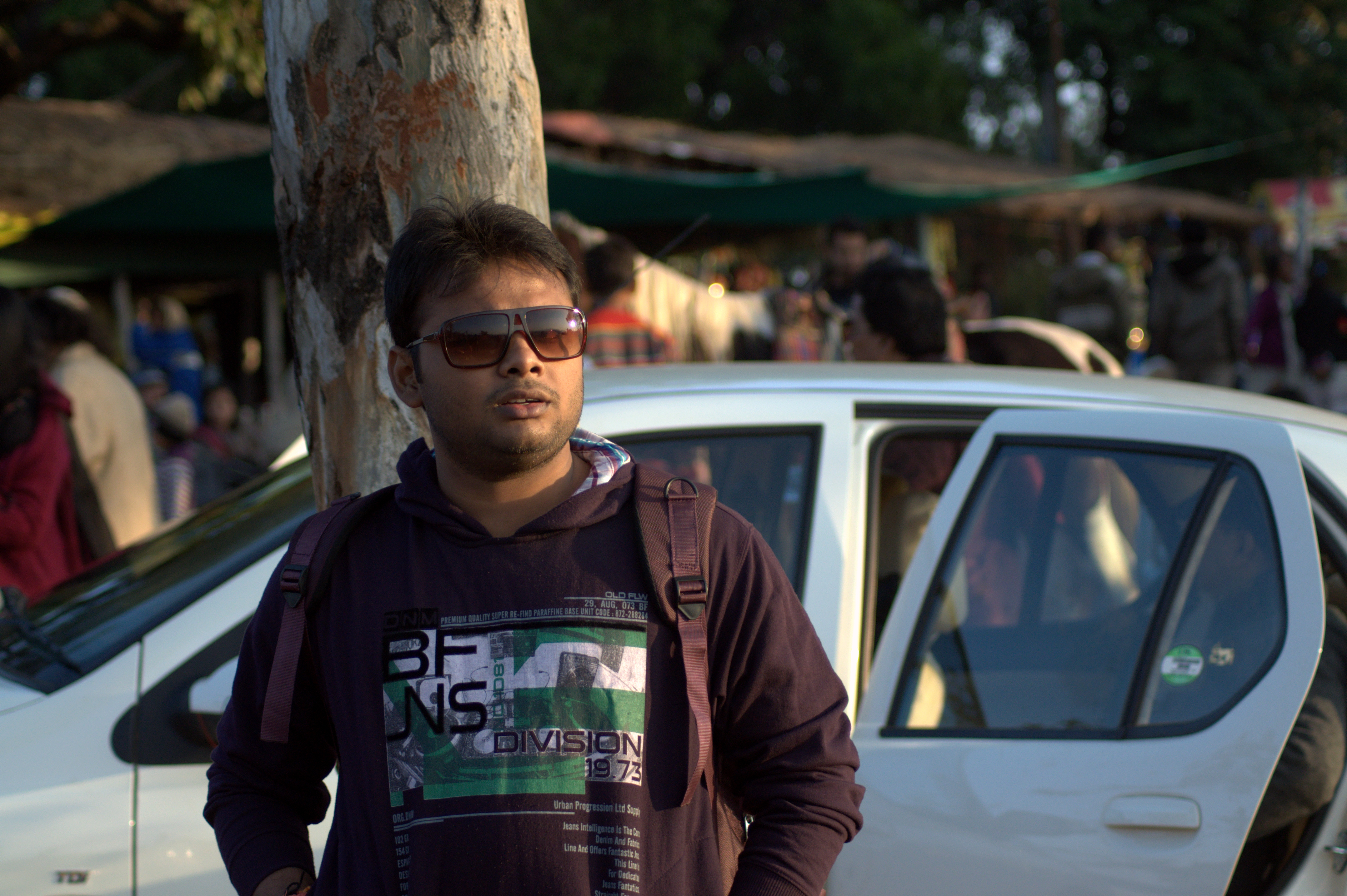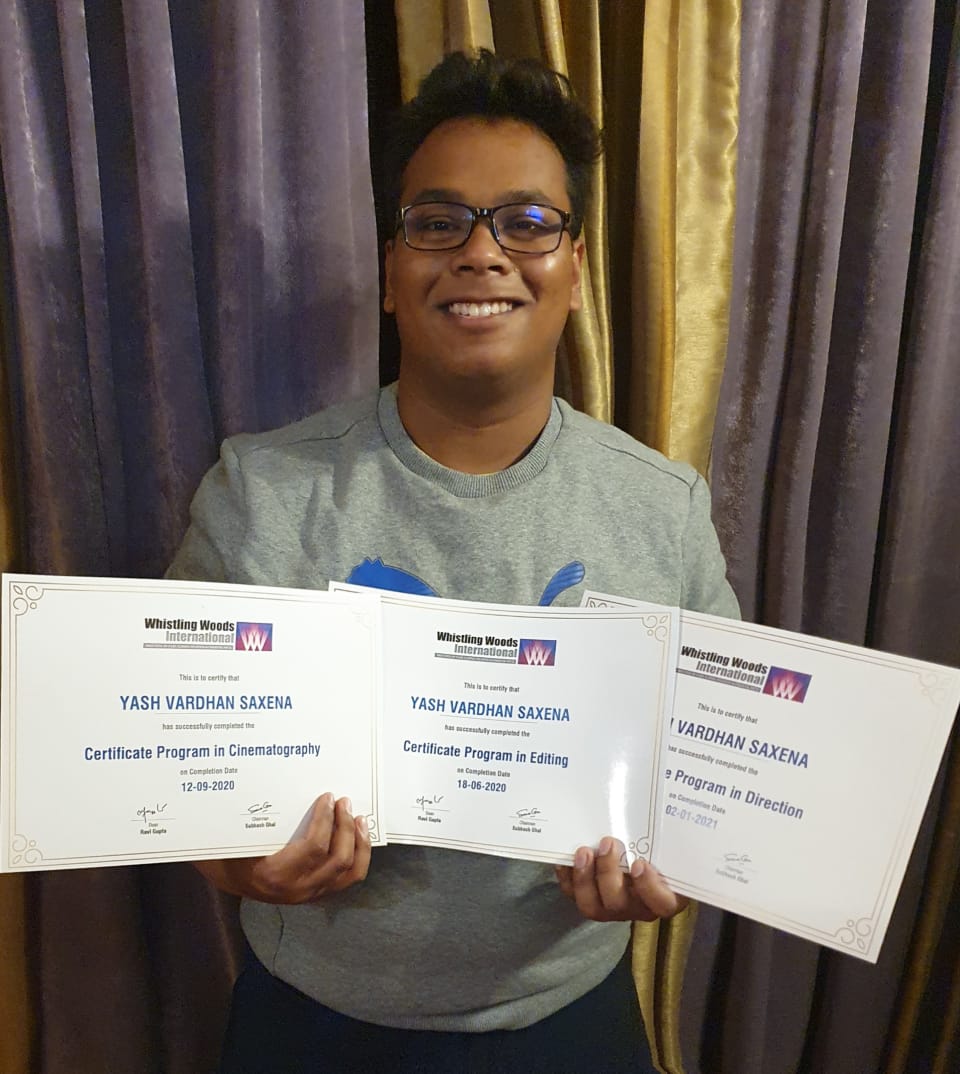Filmmaking was revolutionised when sounds were added to it, making it more immersive than ever before. The responsibility of a sound designer is to record, acquire, edit and create the various audio elements required in a movie. The sound designer works closely with the director to create an acoustic environment for the audience. A successful sound designer must be creative and have the technical skill and expertise to translate their creativity for the movie.
On successful completion of all the modules included in this programme, the user shall be given a certificate from Whistling Woods International. You can download the certificate in the form of a PDF.
There is no specific time limit or schedule to do a module-based programme such as this one. However, the access period to the platform is 1 year
This is a module-based programme, so there is no specific schedule to adhere to.
Please refer to the curriculum tab on the programme page of the programme.
This programme comprises of learning through video-based lectures. You will also be given the transcripts of these lectures. The content is derived from the knowledge base of Whistling Woods faculty and Industry experts along with specific case studies used to explain the concepts and theories.
There are no programmework or assignments in this programme.
There are no live sessions included as part of this programme. However for live sessions and on campus specialization workshops, please check our Advanced Certificate in Filmmaking programme
Programme fee:
₹ 7,500 (Inclusive of all taxes)
Admission criteria:
- No work experience is required to apply for any of the programs
- It is recommended that applicants have cleared Xth grade or equivalent
- All candidates need to have reading and speaking proficiency in English
Notes:
- You can pay for the programme with a debit / credit card and through Netbanking.
- On successful payment transaction, you will receive a confirmation mail with the order no. and payment acknowledgement.
- You will be provided a programme login URL within 48 hours of making a payment. Please register on the URL to gain access to the programme.
- In case of any issues during payment, please write to us on wwi.extension@whistlingwoods.net

